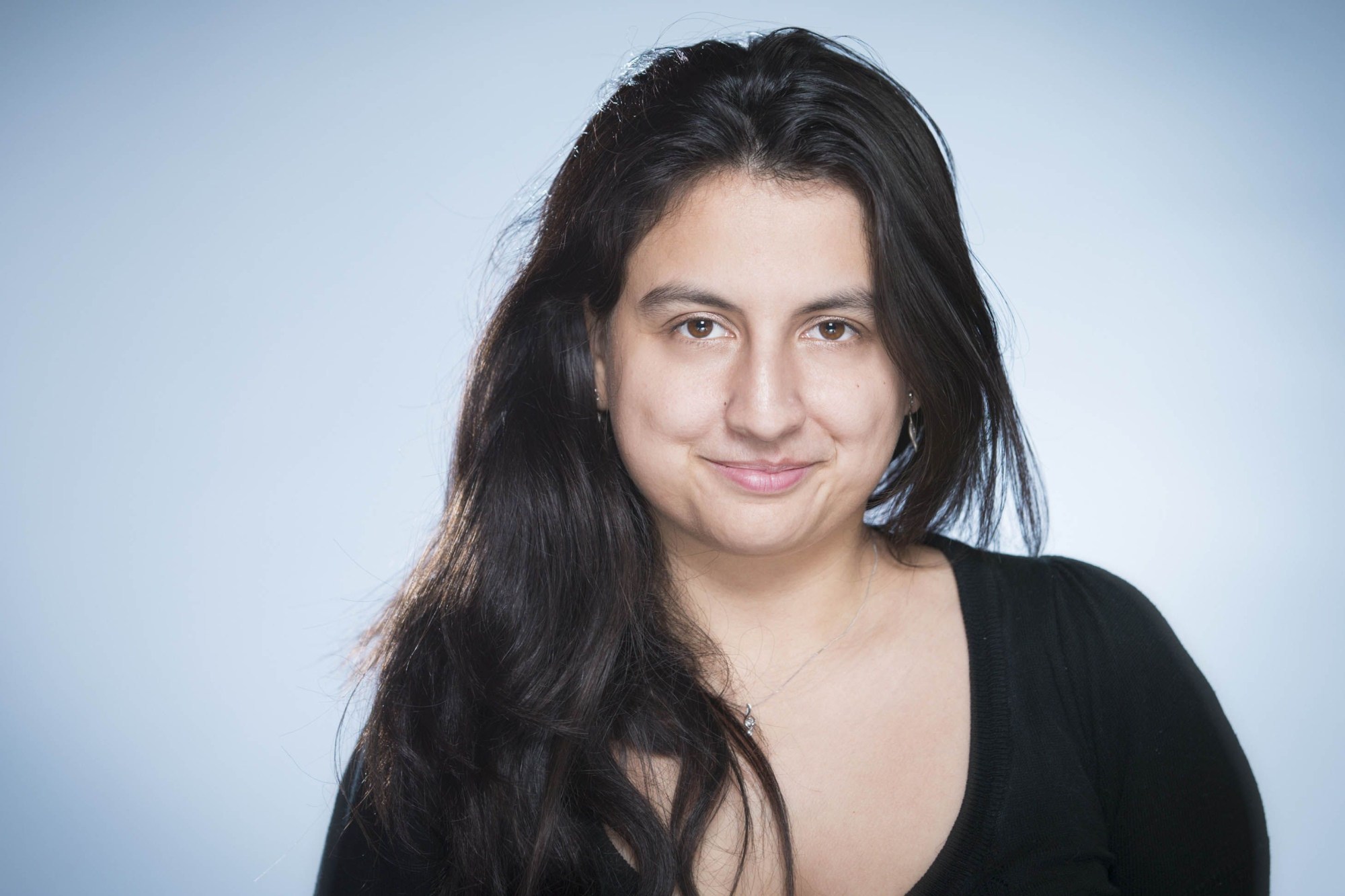Am I doing this woman thing right? Do you do this woman thing the same as me? Does it matter? Existential lady crisis — we all have it. Notes on Being a Woman is an ongoing series that examines the many myths and meanings of what being a woman is all about.
“My background, identity and life feel like they’re in a constant state of flux,” muses playwright writer Nessah Muthy. She grew up in Tadworth, Surrey — “Not the posh bit!” she adds hastily. Nessah is mixed race — of Mauritian and Morden heritage — raised by her mum’s Morden side, but looks “arguably physically more Mauritian”. Growing up she never realised that writing could be a career path. “I thought EastEnders just appeared on the telly,” she says.
Going to the theatre had a profound effect on Nessah as a child. Particularly the pantomime. “I remember being the child picked to go on stage and receive a special present,” she says. “If memory serves me right, a Grange Hill actor gave me a “magic invisible coin” that I was to place under my pillow that night. By morning it would miraculously turn into a £5 note. I don’t think my parents were too pleased about that, especially as I insisted on carrying the “magic invisible coin” for the rest of the day.”
In the end it was Mr Butcher, a particularly inspirational drama teacher, that gave Nessah the confidence to make her own entrance into the world of theatre, bu penning her first play, which he typed up for her and sent away to a competition run by the Brit School and the Warehouse Theatre, both in Croydon. “The piece won the competition and was subsequently performed for a few nights. We found out about the win via fax the morning of my history GCSE exam.”
Throughout her career, Nessah has worked with some of the UK’s most esteemed theatre companies, from the Royal Court Theatre and HighTide, to Punchdrunk and the National Youth Theatre. For screen, she has written for Holby City, and coming full circle, EastEnders. She is the inaugural recipient of the Character 7 Award and is currently developing a number of new ideas for screen. For Nessah, the appeal of writing comes in its potential to ask questions. The big scary ones that she doesn’t always have the answer to. That and the thrill of putting working class women of colour quite literally centre stage. “That is the most important thing of all,” she says. Her recent play, Sex With Robots and Other Devices, is a dark enquiry into what our relationships with sex robots might come to look like. “Although the tech and the robots in my play are far more advanced than what we have now, the ‘what ifs?’ of the worlds and stories the play offers up feel pertinent to the probing and (hopefully) change that is occuring within society right now.” Ahead of the launch, here Nessah offers her notes on being a woman.
One of the best things about being a woman for me was giving birth to human life. It’s pretty awesome… and painful! Professionally I love working with other women. It’s my utopia, to be honest. I simply much prefer working with women and have made it my life’s working mission to always do so! I strongly believe in being the change.
The hardest thing about being a woman is I think still all the existing and visible/invisible prejudices faced at work, at home, as mothers. There are STILL so many boring, unnecessary barriers, in the arts, in work, in society to overcome…still fighting.
The best advice someone’s ever given me about human bodies is to be kind and look after yourself!
The book which told me the most about being a woman is Younger Self — anything and everything by Jacqueline Wilson.
My favourite song about being a woman is Just a Girl by No Doubt.
I admire loads of women. My mum, my nan, my mother-in-law and my daughter!
The best thing about getting older is not giving a shit about all the old hang ups/worries I had on a more superficial level.
The biggest lie about getting older is that one day everything will be perfect.
I feel most like a grown-up when saying the things my mum said to me, to my own daughter.
Love sounds like screaming and shouting at each other and yet not being unable to resist a smile at the sly joke made mid-argument. It tastes like chocolate cake and feels like holiday sun, sea and sand.
I’m happiest when I’m with my family.
Stephanie Nnamani asks: when did you last define freedom for yourself?
I don’t know if I ever feel wholly free… but probably somewhere on a beach or while swimming in the sea.
My question for the next woman doing this column is: What does feminism mean to you?
Sex With Robots And Other Devices is showing at The King’s Head Theatre until June 2nd
